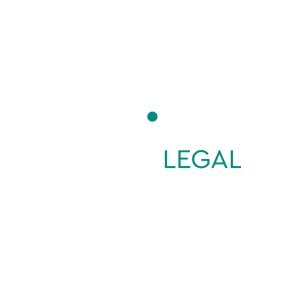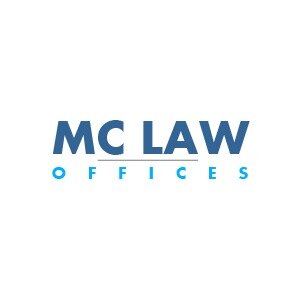Best Water Law Lawyers in Mauritius
Share your needs with us, get contacted by law firms.
Free. Takes 2 min.
Or refine your search by selecting a city:
List of the best lawyers in Mauritius
About Water Law in Mauritius
Water Law in Mauritius governs the management, use, protection, and allocation of the nation's water resources. This legal area covers a wide range of matters such as access to clean water, allocation for agricultural and industrial use, environmental protection of lakes, rivers, and groundwater, and the regulation of water-related infrastructure. The primary objectives are to ensure sustainable use of water resources, protect water ecosystems, and maintain fair allocation to various stakeholders including individuals, businesses, and communities. Mauritius, as an island nation, pays particular attention to water conservation and management to address challenges like drought, over-extraction, and pollution.
Why You May Need a Lawyer
Consulting a lawyer specializing in Water Law in Mauritius is important in various scenarios. Common situations where legal advice may be required include:
- Disputes over water rights between neighbors, landowners, or businesses
- Compliance with regulations for drilling wells or using boreholes
- Issues related to water pollution or contamination
- Understanding legal requirements for irrigation systems in agricultural projects
- Land development projects that may impact water flow or availability
- Water rationing or restrictions imposed by authorities
- Legal action arising from flooding or water damage
- Cross-border or shared watershed issues involving international regulations
Local Laws Overview
Water Law in Mauritius is shaped by several key statutes and regulations aimed at sustainable management and equitable allocation of water resources. The main law governing the sector is the Water Resources Act 2013, which establishes the framework for water use, licensing, and conservation. The act creates the Water Resources Unit (WRU), responsible for regulating public and private use of water.
Other important regulations include those governing the Central Water Authority (CWA), which manages potable water supply and infrastructure, and the Environment Protection Act, which addresses water pollution and environmental conservation measures.
Key aspects of the local water law include:
- Licensing and permits for the abstraction, use, or diversion of surface and groundwater
- Regulation of construction and operation of boreholes and wells
- Enforcement of standards for water quality and discharge of effluents
- Provision for public and private water rights
- Mandated environmental impact assessments for projects affecting water resources
- Protections for wetlands, riverbanks, and watersheds
Frequently Asked Questions
What is the Water Resources Act and why is it important?
The Water Resources Act is the principal legislation that regulates the use, management, and conservation of water resources in Mauritius. It establishes the legal framework for water abstraction, use licensing, and protection of the nation's water, ensuring sustainable management and fair access for all users.
Can I drill my own borehole or well on my property?
No, you cannot drill a borehole or well without first obtaining a permit from the Water Resources Unit. There are set technical and environmental standards to be followed, and violations can lead to penalties.
How is water pollution regulated?
Water pollution is regulated through the Environment Protection Act and related regulations. Discharge of pollutants into any waterway or groundwater source is strictly controlled. Offenders face fines, cleanup orders, and possible criminal prosecution.
Who supplies drinking water in Mauritius?
The Central Water Authority is the main body responsible for providing potable water to residential, commercial, and industrial consumers throughout Mauritius.
What can I do if my neighbor is diverting a river or stream?
If you suspect illegal water diversion or abstraction, you should report the incident to the Water Resources Unit. Legal action can be taken against individuals or businesses that violate water rights or cause environmental harm.
How are water rights determined?
Water rights are determined by government regulation. Usage rights are generally granted through licenses, taking into account factors like intended use, location, and sustainability considerations.
Are there restrictions on using water for irrigation?
Yes, there are restrictions and requirements for agricultural water use, including licensing and adherence to water-use schedules during dry periods or drought. The Water Resources Unit monitors and enforces these rules.
What is the process for resolving water-related disputes?
Disputes are typically addressed by the Water Resources Unit in the first instance. If unresolved, cases can be escalated to the Environment and Land Use Tribunal or to the courts.
Can businesses extract water for industrial use?
Yes, but only with the appropriate license from the Water Resources Unit. Environmental impact assessments may be required for large-scale extractions.
What happens during water shortages or droughts?
During shortages, the government or Central Water Authority may impose restrictions or rationing to prioritize essential uses and protect critical water resources. Notices are typically issued to inform the public of relevant measures.
Additional Resources
Individuals or businesses seeking more information about Water Law in Mauritius may find the following resources useful:
- The Water Resources Unit (WRU) - for permits, licenses, and regulatory guidance
- Central Water Authority (CWA) - for queries on potable water supply, billing, and infrastructure
- Ministry of Environment, Solid Waste Management and Climate Change - for environmental protection and pollution reporting
- Environment and Land Use Tribunal - for dispute resolution and appeals
- Local NGOs focused on environmental and water conservation
Next Steps
If you need legal assistance in the field of Water Law in Mauritius, consider the following steps:
- Identify and clearly outline your issue or question regarding water rights, compliance, or dispute
- Gather any relevant documents, permits, communications, or evidence relating to your case
- Contact a licensed lawyer specialized in environmental or Water Law for an initial consultation
- Visit the Water Resources Unit, Central Water Authority, or Ministry of Environment for official guidance or to access required forms
- If the matter involves an urgent or ongoing violation, such as pollution or illegal water extraction, report it immediately to the relevant authority
Lawzana helps you find the best lawyers and law firms in Mauritius through a curated and pre-screened list of qualified legal professionals. Our platform offers rankings and detailed profiles of attorneys and law firms, allowing you to compare based on practice areas, including Water Law, experience, and client feedback.
Each profile includes a description of the firm's areas of practice, client reviews, team members and partners, year of establishment, spoken languages, office locations, contact information, social media presence, and any published articles or resources. Most firms on our platform speak English and are experienced in both local and international legal matters.
Get a quote from top-rated law firms in Mauritius — quickly, securely, and without unnecessary hassle.
Disclaimer:
The information provided on this page is for general informational purposes only and does not constitute legal advice. While we strive to ensure the accuracy and relevance of the content, legal information may change over time, and interpretations of the law can vary. You should always consult with a qualified legal professional for advice specific to your situation.
We disclaim all liability for actions taken or not taken based on the content of this page. If you believe any information is incorrect or outdated, please contact us, and we will review and update it where appropriate.
Browse water law law firms by city in Mauritius
Refine your search by selecting a city.
















